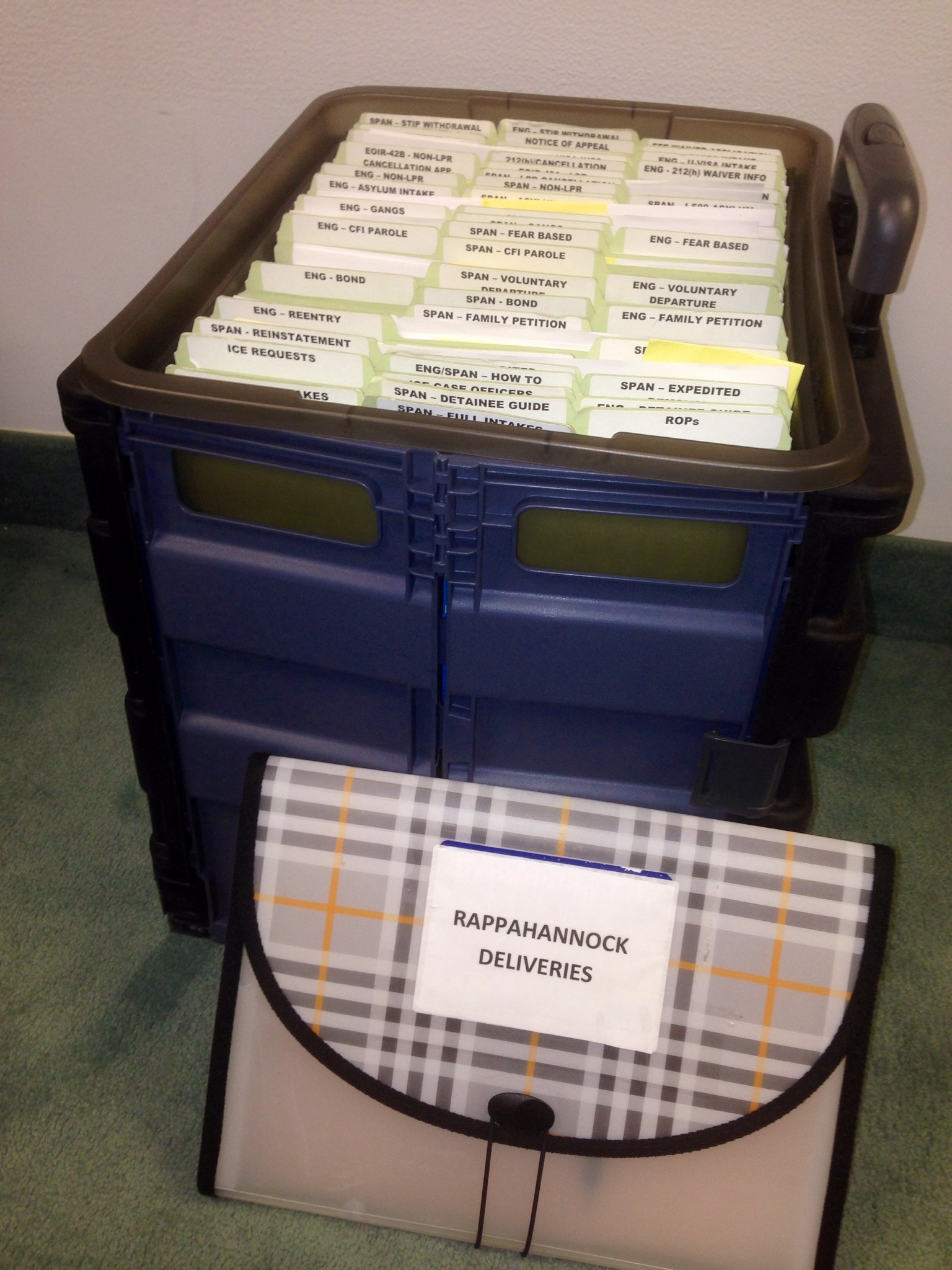
By Kelly White, Staff Attorney, Virginia Adult Detainee Program
I came to CAIR Coalition after initiating a pilot immigration legal services program for a non-profit in North Carolina. Prior to working domestically, I had labored abroad in Tanzania, writing briefs in support of refugees living in camps near the eastern border of the Democratic Republic of Congo and Burundi. Since then, I came on board as the new Virginia Adult Detainee Staff Attorney at CAIR Coalition, joining a team of attorneys providing services to a population of individuals in crisis.
My expectations coming into my first visit to an immigration jail was that the center would be a score of chaos and noisy desperation. I believed this because there would only be four of us-- two attorneys and two volunteers-- to manage and collect over 100 detainee stories in a matter of hours. We would interact with people who had fled war overseas, survived torture, been wrenched from their U.S. Citizen families, and/or had received little information about their situation in detention.
It is the simple principle that supply of knowledge and representation could not meet demand. I worried that in the jostle to obtain information and to understand one's own rights, those more apt at navigating the system would run over the smaller voices in the group.
Nothing could be further from the truth.
At the Detention Facility
The morning of our jail visit, our supervising attorney, Claudia Cubas, two volunteers, and myself woke before dawn to load the car and travel to Stafford, Virginia. Hours of work went into the preparations for my first jail visit, including copying, collating, and reviewing countless names and stories of detainees with whom CAIR Coalition had met on previous visits.
As we began, I knew that CAIR Coalition had not been to Rappahannock Regional Jail since the winter holidays, which meant that there would be more people seeking individual intakes than normal and more people desperate to seek understanding about why they were in detention and when they would be able to see their families again. I thought this would mean more people scrambling to get our attention and diverting our attention from those who were not as clued in to the process.
After group presentation, we scurried to conduct individual story collections on over 50 detainees in the first dorm, inquiring about family in the United States, the situation in the individual's home country, past criminal convictions and arrests, and any incidents of victimization in the United States. We had to hustle to complete intakes before the scheduled lunch. Less than two hours for the group presentation and individual intakes, and then we were off to the next dormitory, striving on with diligence.
Each time we entered a dorm, detainees were quick to arrange seating for the group presentation and clean off tables where they had recently consumed lunch. One detainee volunteered to help make copies of original documents for us to include in our files.
Others more accustomed to our presence would help guide newly arrived detainees and those who were having a difficult time understanding our purpose, likely still in the shock of detention and culture. Other detainees, fluent in English, would bring to our attention those persons who needed an interpreter. Time and again, one person would flag me if we were about to leave a dormitory and miss a story collection with someone.
Other times, we would begin a presentation and someone would come up to me and point to a person still locked behind a door, with an ear pressed up to the thin precious part that permits sound to travel, straining to hear Claudia's words. Those free to move about and signal me knew the presentation was crucial and that although they were physically limited and emotionally strained, their compassion and egalitarianism was not.
So this is what I learned and witnessed my first day, that despite the physical restrictions, resource limitations, and emotional burdens: the human spirit knows no such boundaries. I see it in the people at CAIR Coalition, the volunteers, and in persons detained.
And this was just my first day.

